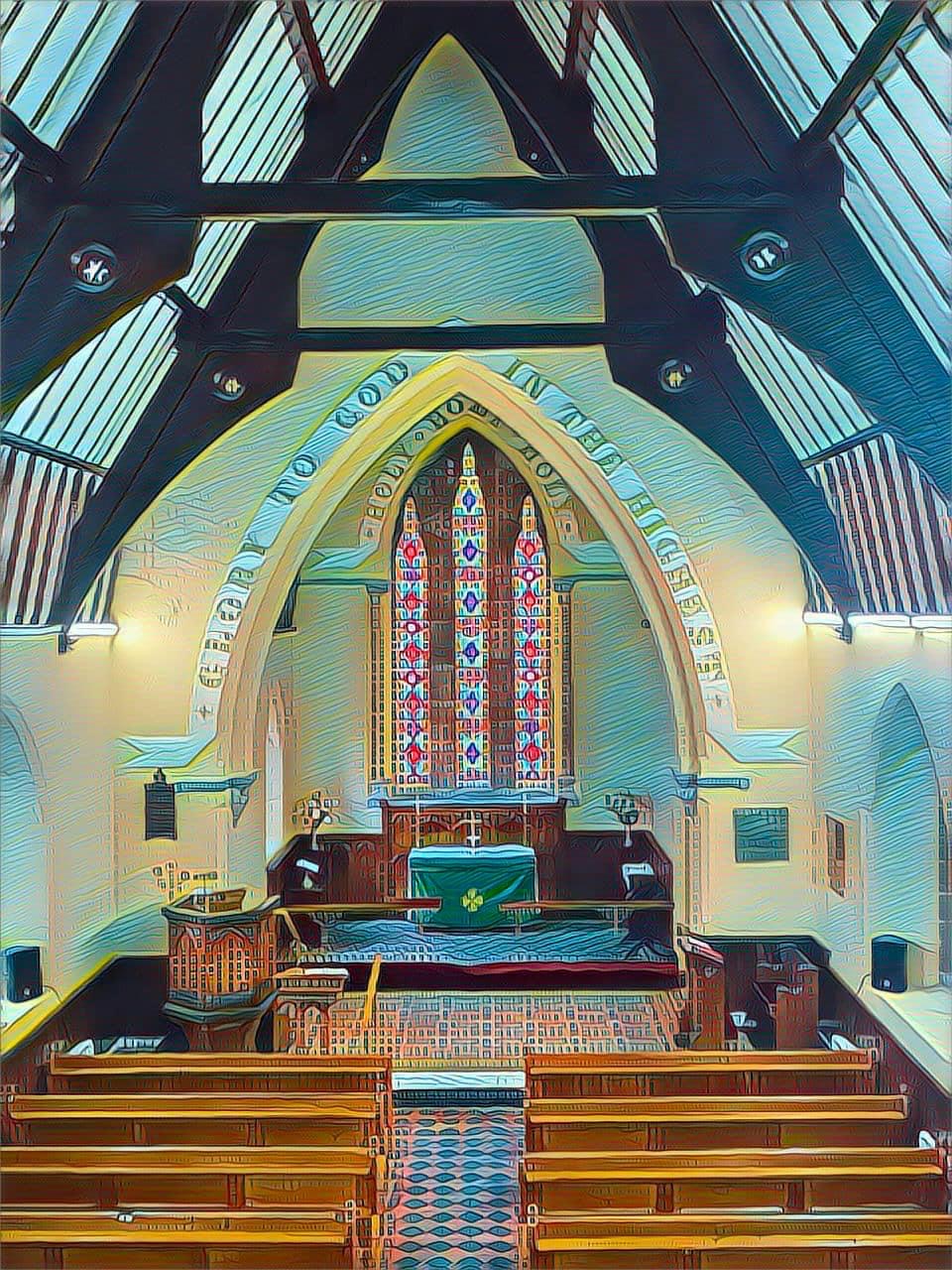A reading and a reflection
St John 20: 19-23
When it was evening on that day, the first day of the week, and the doors of the house where the disciples had met were locked for fear of the Jews, Jesus came and stood among them and said, ‘Peace be with you.’ After he said this, he showed them his hands and his side. Then the disciples rejoiced when they saw the Lord. Jesus said to them again, ‘Peace be with you. As the Father has sent me, so I send you.’ When he had said this, he breathed on them and said to them, ‘Receive the Holy Spirit. If you forgive the sins of any, they are forgiven them; if you retain the sins of any, they are retained.’
Reflection
We normally think, in Holy Week, about the crucifixion, death, and resurrection of Jesus and what it all means.
We normally associate the giving of the ‘Holy Spirit’ in Acts at Pentecost with images of fire, prayers offered in multiple languages, and attention to the Church’s prophetic vocation.
“The Johannine Pentecost,” as this passage is sometimes called, gets much less attention.
That makes sense, since in John’s Gospel Jesus does not impart the Holy Spirit on the Day of Pentecost. Here, the Spirit comes at Easter, during Jesus’ first post-resurrection appearance to a collection of his followers. (Earlier in the day, outside the tomb, he spoke to and commissioned only Mary Magdalene.) Also, in this passage we encounter the Spirit with less of a universal tone (in comparison to Acts); the focus here is more particular, focused on the identity and sending of a community.
The close connections John draws among Jesus’ promises about the Spirit, his glorification and ascension, his intimacy with the Father, and his commissions to his followers caution us not to skip over “the Johannine Pentecost” too casually, as if it serves merely as a final “Goodbye, and good luck” from Jesus to his friends.
Receiving the Spirit, the Church receives Jesus. And so the Church receives Jesus’ own capacity to make God manifest, bringing light to the world. The Trinitarian intimacy inferred from John’s presentation of these ideas is striking, but even more so is the intimacy expressed between the Divine and humanity.
Such intimacy between God and us is but one consequence of the rich Easter confession about what happens when God raises a corpse to new life. Jesus lives, yes–not apart from us, but in and through us.
Prayer
Lord Jesus, we thank you that you meet us every day, just as you met your disciples after your resurrection.
We thank you that your victory of good over evil, love over hate and life over death made such a difference to the lives of the disciples just as it continues to make such a difference to our lives today.
And we praise you that for each of us there is always the promise of new beginnings. Amen



